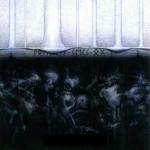Cannot agree, either. For one, if you feel like he dismisses and glosses over the suffering of people, I do not want to read a book in which you feel the author doesn't, because I feel like SE has a way with being both poignant and brief in driving home what he wants to say without endlessly dwelling on one scene just to make sure it is accessible to the lowest common denominator. I do not want to read endless descriptions of how much someone is suffering as I feel like he tells us just enough to understand the implications and be horrified without cheapening the experience by pages upon pages of mundane description. Thus, to answer your question: I not only will reread the series, I have, more than once, and will again, and SE's prose and style are a huge factor in why I keep doing it.
Another thing I do not agree with is that he depicts "the masses" as unilaterally stupid and ignorant. It is not so. While we do have instances of "the masses" acting as one, they are exclusively (at least as far as I can think of any examples) in the presence of fanaticism or desperation. The ordinary people (of which he also depicts more than you seem to think, at the very least way more than other authors) are generally shown to be individuals and to have their own thoughts, etc. People often complain that the marines all read like one homogenous mass when the point of them is that while they all are part of a whole, they still retain a degree of individualism, with each marine having their own outlook on what is going on or why they keep going. I doubt SE took the time to write each one of them to plump up the narrative. He did it to show that those marines, who in the end almost all die in a battle that ordinarily would have no individual faces, ARE, in fact, individuals, and I think he uses them as a stand-in for all other kinds of groups which we may percieve as homogenous because they do not get that treatment. But it is impossible to give that treatment to every single group the narrative touches upon, so with most of the others, we only get glimpses most of the time, which, however, in no way implies that they are all the same and all stupid and ignorant. In fact, I would argue that what you call the stupidity of the masses as "a MAJOR factor in historical, anthropological, sociological tragedies" is hardly his viewpoint. Uneducated does in no way equal stupid. And the books repeatedly show that as a general rule, the common people do not care about the shenanigans of those in power as long as their own life is not greatly influenced by that. To the contrary, we only see true mass movements of the common people when their lives ARE uprooted or otherwise made so miserable that they have no other choice.
On an unrelated note: the common dot is not a wild beast. It does not bite. To the contrary, it strives to be of help and makes sentences much easier to read. Same goes for the common comma.
This post has been edited by Puck: 23 March 2019 - 05:26 PM

 Help
Help














